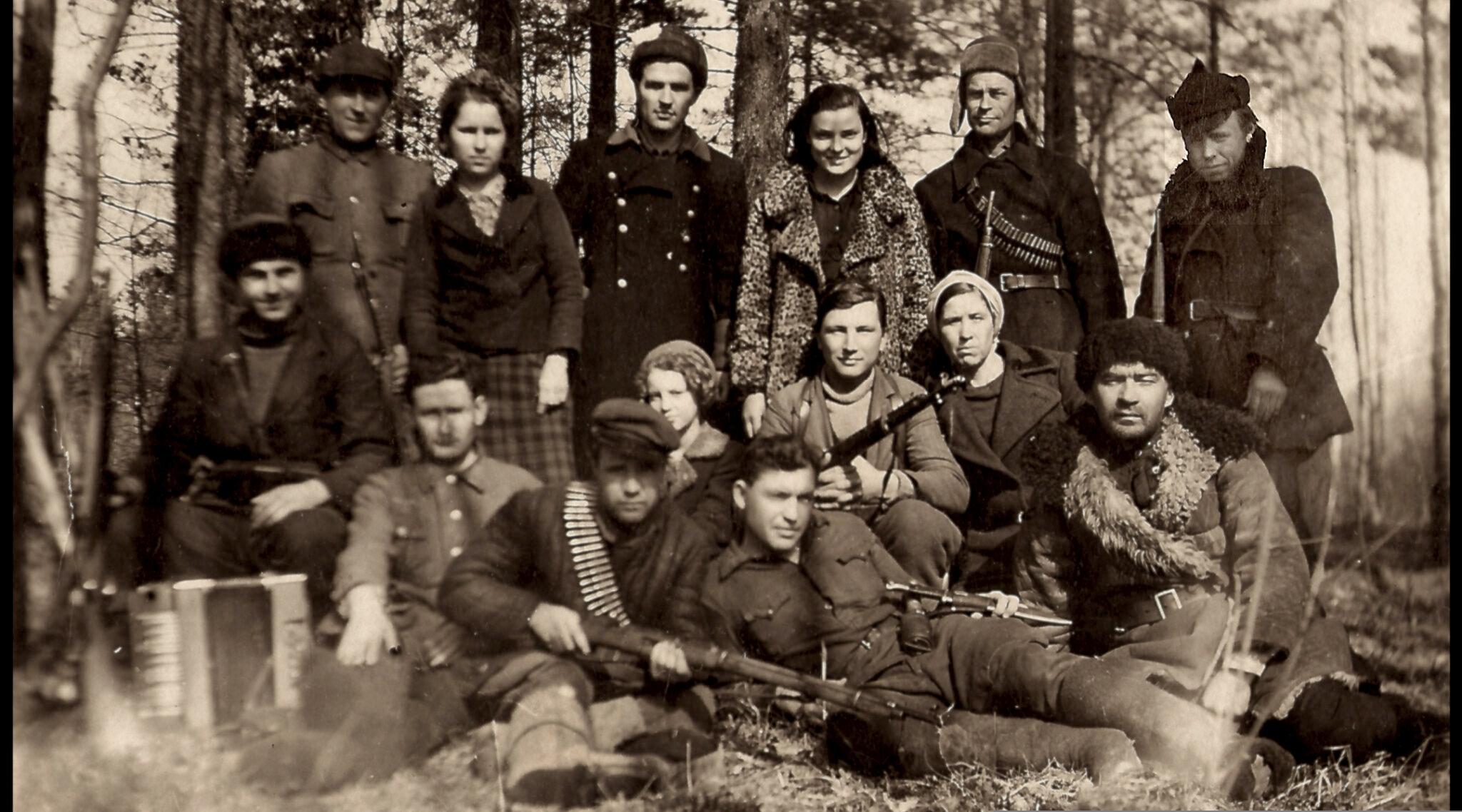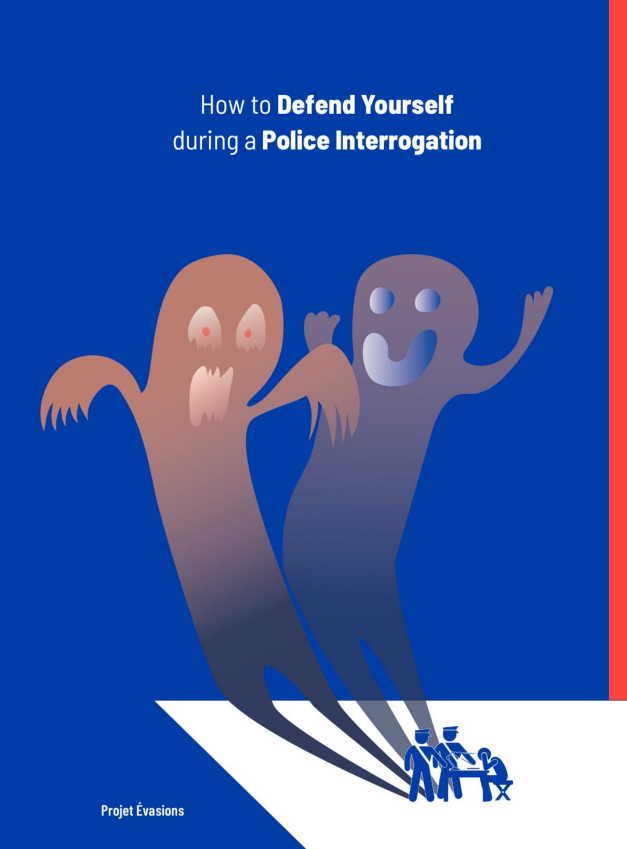“Our group… called for active resistance. But public opinion was against us. The majority still thought such action provocative and maintained that if the required contingent of Jews could be delivered [to death camps], the remainder of the ghetto would be left in peace. The instinct for self-preservation finally drove the people into a state of mind permitting them to disregard the safety of others in order to save their own necks… the Germans had already succeeded in dividing the Jewish population into two distinct groups – those already condemned to die and those who still hoped to remain alive. Afterwards, step by step, the Germans will succeed in pitting these two groups against one another and cause some Jews to lead others to certain death in order to save their own skin.” – Marek Edelman, co-founder of the Warsaw Ghetto’s Jewish Combat Organization, reflecting on July 1942, when armed Jewish uprising was initially rejected.
“Jews, you are being deceived… Do not let them take you to death voluntarily. Resist! Fight tooth and nail… Fight for your lives!” – The illegal socialist bulletin, Storm, of the Warsaw Ghetto.
I started writing this in response to an article and booklet put out by Jewish anarchists called “Don’t Just Do Nothing to Counter Fascism.” It is now a more general proposal for Jews and non-Jews to see the need and outlines of aboveground and underground resistance.
The basis of what I am going to be saying comes from resonating moments of Jewish anti-fascism. These moments include the Warsaw Ghetto uprising where hundreds of Jews killed their Nazi guards and defended parts of the ghetto for weeks against a far better armed SS fighting force. Warsaw combatants had been preparing for years through underground combat organizations with different detachments and commanders elected in the ghetto. They met regularly, coordinated counter-espionage and intelligence, procured weapons and explosives, forged alliances, and operated an illegal printing press. This was all within the confines of an extremely surveilled open-air prison. After the war, the 43 group and 62 group formed, made up of anti-fascist Jews with boxing, martial arts, and military experience in Britain, using street fighting and deploying combative counter-protests at fascist speaking events from the 1940s until the 1970s. And although limited in their success, there are groups like the 2000s’ direct action Palestine-solidarity group, Anarchists Against the Wall, based within the borders of the state of Israel.
Growing up, being Jewish meant a connection to these parts of history. I know like many Jews coming from union families or working class backgrounds, my family took the most pride and found its roots in the historical figure of the Jewish activist, resistance member, labour organizer, holocaust survivor, and artist, rather than any religious or Zionist tradition. A family member had participated in guerilla warfare against the Nazi regime in France. All the other old timers were survivors who had gotten lucky owing largely to chance run-ins with underground resistance. I know I really deeply internalized a lot of these stories, particularly their incredible violence that, from a young age, made me afraid, angry, and want to fight. I have nothing but disgust or rage for the rabbis and collaborators who encouraged six million Jews to, without resistance, walk into gas chambers, die as slaves, and be slaughtered in the open streets.
Already, there is little resistance to the far-right’s platform of attacks on reproductive rights or the mass deportation and internment of migrants. We need to start looking at the places and times where fascism was actually defeated. This includes the historic guerrilla movements of Yugoslavia, France, or China. Today, the revolution in Rojava largely eradicated the fascist Islamic State within Syria in favour of a libertarian feminist society. What all of these projects have in common is armed militias or cells, and combative solidarity based in above-ground mass organizations such as unions, explicitly far-left political organizations, and neighbourhood and town council structures.
Many of the suggestions outlined in “Don’t Just Do Nothing to Counter Fascism” are important, emphasizing our need to rest, develop our skill sets, create collectives based on deep relationships, and practice direct action & mutual aid. I consider its writers comrades and have no intention but a friendly response. Reading their text, I cannot help but feel that a study of our actual Jewish anti-fascist history would have stressed different lessons. This history teaches us that there are uncomfortable risks that we will need to take going forward, that there are disruptions to our usual lifestyles that are required, a necessity of underground fighting groups and sabotage, and the need for organizational infrastructure that can have massive outreach and participation. It is not that the “care culture,” popular among the Jewish Left, is wrong, it is just misleading and an incomplete proposal if taken on its own – as it has been by many. In line with the conclusion of some Black anarchists following the George Floyd uprising, there continues to be a need for “networks of aboveground and underground self-organized resistance.”
In this vein, I would like to respond to the tendency of many Jewish radicals, leftists and anarchists who I feel do not want to fight because they would like to preserve their comfort for as long as they can, and turn their nose up at fighting as though we are not submerged in a dramatic confluence of violence, crises, and hierarchy: fascism or not. We know from the Holocaust that this instinct to not throw ourselves into battle, leads only to prolongation of suffering and attempts to find ourselves within the lucky few who are saved while we leave others behind to suffer. I know it is difficult because many of us have been raised by survivors and working class Jews who fought to survive and now pressure us to live the American Dream. The benefits of our labour union struggles and communalist culture have made many of us, but certainly not all, privileged. Yet, for young people, there is still that desire for revolt, a deep-felt solidarity, and spirit of autonomy that needs encouragement and support, not recuperation and sedating.
This failure of Jewish radicalism is reflected in the present state of Israel. There was never a serious drive by Jewish anarchists and socialists to destroy the Israeli state and capitalism. Even worse, there was no serious effort to prevent the state from forming. The Jewish working-class accepted, passively or actively, ethno-nationalism above all else, a compromise with the Jewish bourgeoisie and political class rather than a revolutionary struggle to overcome them. This is despite the attractive alliances available, not to mention basic obligations of solidarity, with Palestinian revolutionaries. It is impossible to speculate on such a dramatic imaginary turn in history, but had such an anarchist spirit existed and prevailed in executing a revolution in Palestine, there could have been self-organization, communalization of property and workplaces, and cooperative multi-racial communities in the place of government authority. This is a mistake by the Jewish left of historic proportions. I do not see how the suggestions listed in “Don’t Just Do Nothing to Counter Fascism” would materially undermine states like Israel or have changed the course of this history. There needs to be a greater emphasis on guerilla, mass movement, and other attacks that would be required to overthrow a government. And for this to exist, there must be the structure and group cultures that can bring this insurrection about. Unless we follow this path, we’re just speculating on ways to carve out our own comfortable activist lives within fascism as Israeli leftists have done.
It is worth studying the success of the 1904-1907 Yiddish anarchists in Poland’s industrial city of Bialystok. There, anarchism became the dominant political ideology among the working class. The Bialystok groups were taken up as a tendency across the Russian empire due to their success, including by the anarchists of Gulyai Pole who would later liberate a territory of up to seven million people. Anarchists created neighbourhoods within Bialystok which the police dared not enter, ensured the victory of strikes (typically through terrorizing bosses into accepting strikers’ demands), and when a pogrom started in the city, it was anarchists who led its armed defence and street patrols.
These Yiddish anarchists organized through groups, usually based on affinity, with different sections for technical, agitational, propaganda, Polish-language outreach, and weaponry work. All combined, the anarchist groups never had more than a few dozen members, most aged 15 to 20. One account of a meeting of a group, done in a cemetery, counts just four members in attendance. Connected to the groups were federations of hundreds of workers organized along an anarchist basis and divided by industry. Furthermore, the small groups created spaces within the city where crowds could gather for political discussions, debates, and the distribution of anarchist flyers and newspapers. In this way, these numerically small anarchist groups developed an outreach and influence across a broad population. The confidence in the group was so considerable that they developed an arbitration board, being overwhelmed with people, including petitioners from villages surrounding the city, coming to them to settle interpersonal disputes and issues of daily exploitation. Anarchists stockpiled weapons for the complete takeover of Bialystok and the development of an “industrial-military commune,” something for which workers were ready to launch a general strike, only to abandon the plans due to a lack of joint revolutionary action from other cities.
We need answers that can allow us to similarly confront the state and capitalism. Past generations of Jews have developed these responses before. Based on this, here are some additional recommendations for our fight. These recommendations are for everyone in and outside of the US, in rural and in urban areas. Whether fascism seems on the distant horizon or a close reality, the violence of oppression in our current society – call it fascism, colonialism, capitalism, or whatever you want – requires active preparation for a revolution:
1. Create or join underground resistance : This resistance can deploy industrial sabotage, military sabotage, attacks against private property, black blocs, surprise or “whisper” demonstrations, riots, conduct expropriations, looting, seize property (also known as “squats”), execute untraceable online activity, and other combative offensive and defensive moves. They can equally coordinate safehouses for migrants facing deportation or confinement – such as was done by many Polish and French people for us Jews – or perform clandestine abortions – as was done by the Lodz Ghetto survivor, Henry Morgantaler in Montreal.
This resistance can be based in small groups of people who work well together, assist each other in meeting each others’ needs, and develop a robust culture of secrecy and security. There needs to be a focus on propaganda work, onboarding, skill training, critical discussions on short/medium/long-term goals, confederation with other such groups, and connection to above-ground organizations and struggles. There is never a bad time for an underground resistance. It is never too soon. It is only ever too late. Anarchist news sites across the US regularly broadcast report-backs on nocturnal attacks against military facilities, extractive industries, and businesses being targeted by public movements. This resistance work needs to develop further structures (as was done by Bialystok anarchists), courage, affinity, skills, deeper revolutionary analysis, broader propaganda efforts, and synergy with aboveground groups to become a more serious threat.
2. Create or join radical mass organizations or movements : These organizations should be based on individual autonomy, confederation, combativeness, direct action, the elimination of internal hierarchy, mutual aid/education, and solidarity. Anarchist labour unions, tenant self-defence, neighbourhood and student assemblies, and anti-fascist fronts have all been examples employed by Jews from the women working in the Shmata Business, to the New York mothers leading rent strikes from 1918-1920, to the striking students fighting antisemitism at Aberdeen elementary school.
For those not yet ready for underground resistance, these mass organizations are a place to start and one in which most skills of any sort prove to be valuable. But do not mistake an NGO, political party, or your institutional student or workers’ union as such an organization. This is just a recipe for losing time.
3. Create or join a specifically anarchist aboveground group : Potentially modelled in the same way as the anarchist affinity group: unapologetic and vocally anarchist public facing activity is often necessary. Organizations of anarchists, such as Food Not Bombs, are interesting projects, but not a replacement for a specifically anarchist group, just like starting a breakfast program for kids is not a replacement for the Black Panther Party. Public anarchist activity should incorporate infrastructure for meeting peoples’ basic needs through direct action, mutual aid, and social centres where people can gather to build knowledge and relationships. People should be given skills to not just fight fascism, but its roots: the state, capitalism, patriarchy, racism, and all other systems of oppression and authority. Aboveground anarchist activity, namely education, mutual aid, direct action, and social events, can be carried out by these groups.
“Murder us, tyrants, but new fighters will come and we will fight on and on, until the world is free.”
– In Kamf (In Struggle)
Questions and comments are warmly welcomed at Jewswholiketofight@proton.me
Submitted anonymously over email.


